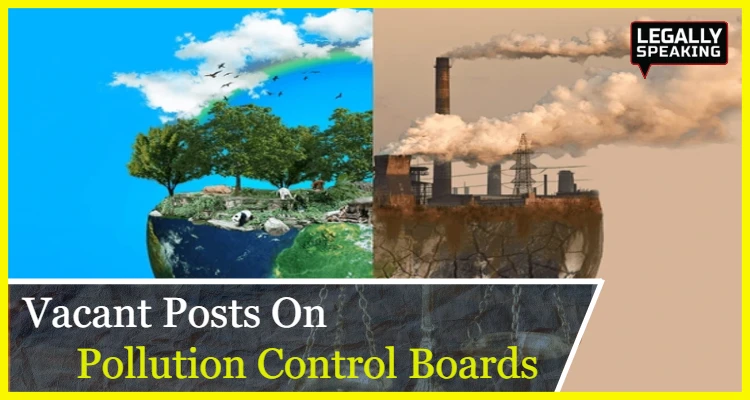
The National Green Tribunal (NGT) has directed the member secretaries of all state pollution control boards and pollution control committees (in Union Territories) to submit affidavits explaining the significant number of vacant sanctioned posts.
Observing that nearly 50 percent of positions nationwide remain unfilled, the tribunal remarked, “Such a substantial vacancy is a primary cause for the inadequate enforcement of environmental acts and regulations.”
Green Panel
The green panel was hearing a matter concerning the infrastructure, resources, and capacity of state pollution control boards and pollution control committees, which have been adversely affected due to various factors, including insufficient sanctioned personnel and a high number of vacancies, particularly in technical roles.
CPCB
Following a report by the Central Pollution Control Board (CPCB) in response to an earlier directive from the tribunal, a bench led by National Green Tribunal Chairperson Justice Prakash Shrivastava described the situation as “very grim.”
“We have observed that despite the sanctioned staff strength in state pollution control boards and pollution control committees, appointments have not been made, and positions remain vacant, adversely affecting the regulatory mechanism at the state level concerning environmental issues,” the bench, which also included Justice Arun Kumar Tyagi and Expert Member A Senthil Vel, remarked.
Highlighting the report’s findings, the tribunal noted, “Almost 50 percent of posts are vacant, with the highest vacancies seen in Bihar, Jharkhand, and the Union Territory of Daman-Diu. This significant vacancy is a key reason for the inadequate enforcement of acts and regulations.”
Facilities and Infrastructure
The tribunal also addressed the insufficient facilities and infrastructure in laboratories of state pollution control boards and pollution control committees.
“Out of 190 laboratories, only 14 are recognized as environmental labs under the Environmental Protection Act (EPA). Additionally, having National Accreditation Board for Testing and Calibration Laboratories (NABL) certification in 48 laboratories holds little significance unless they function as part of an environmental laboratory,” the tribunal stated.
It further noted the lack of disclosure of details regarding staff strength, the ratio of administrative and technical positions, environmental laboratories, and monitoring networks for the CPCB.
Based on the report, the tribunal emphasized that the average expenditure is considerably lower than the income generated.
“Hence, we direct the member secretaries of all state pollution control boards and pollution control committees to file an affidavit before the member secretary of CPCB within six weeks from today, explaining why full-strength appointments have not been made thus far, why numerous sanctioned posts remain vacant, and providing a timeline for filling these vacancies and improving infrastructure in the laboratories,” the tribunal stated.
The NGT has scheduled the matter for further proceedings on July 29, 2024.




